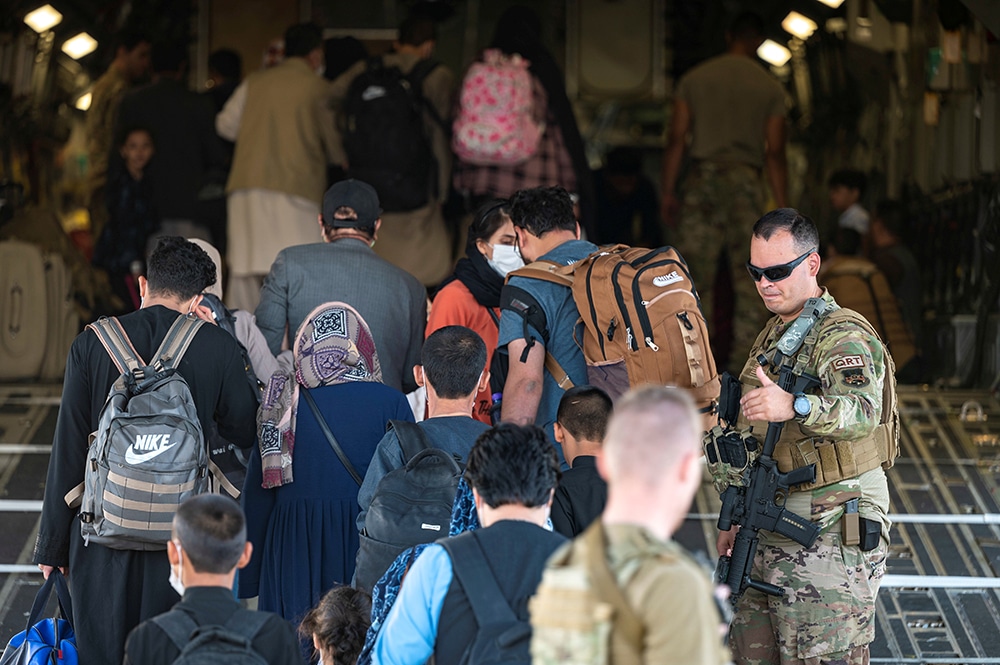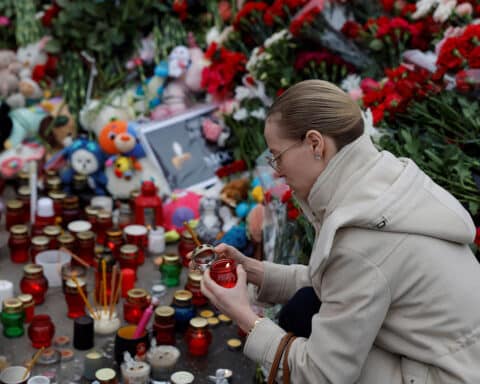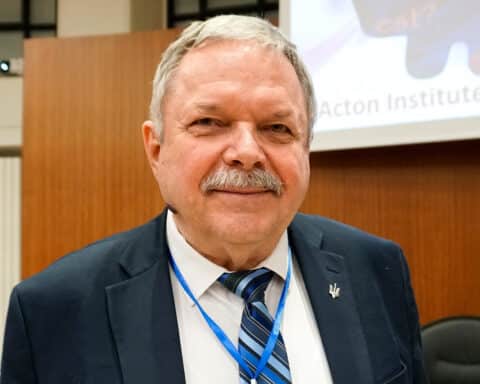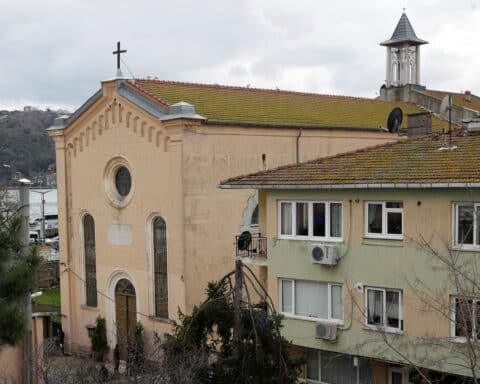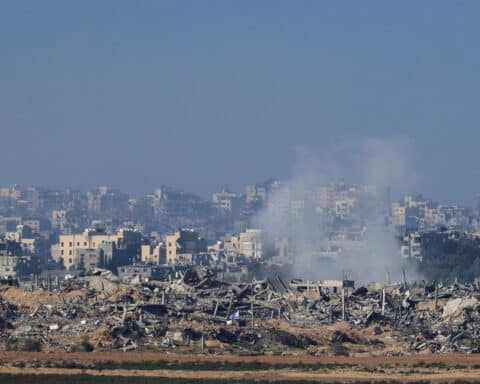On Thursday, at least 13 U.S. service men and more than 90 Afghans died in a suicide attack in Kabul, Afghanistan, marking the deadliest day for the U.S. military in the country since 2011. Less than a week earlier, the Taliban had taken over Kabul as the U.S. military proceeded with its plan to pull out of the country by the end of the month. As Americans approached the 20th anniversary of the Sept. 11 terrorist attacks, when four commercial airlines were hijacked by 19 al-Qaida terrorists, killing nearly 3,000 civilians, questions circulated regarding whether the last 20 years had been worth it, and what could have been done differently.
To give context, 15 of the 9/11 terrorists were citizens of Saudi Arabia, two were from the United Arab Emirates, one was from Egypt, and one was from Lebanon. Many had been members of an al-Qaida cell in Hamburg, Germany. Some had fighting experience in Bosnia. They received training in Pakistan, Yemen and Afghanistan. They spent time in flight schools in the United States — in California, Florida, Arizona, New Jersey and Virginia. The CIA confirmed the identity of the hijackers and that the attacks had been conducted by al-Qaida operatives, consistent with al-Qaida plans to hijack planes and fly them into buildings to kill civilians that were stopped by law enforcement in 1999.
President George W. Bush addressed the public on the evening of Sept. 11, 2001, saying, “We will make no distinction between the terrorists who committed these acts and those who harbor them.” Plans to invade Afghanistan and Iraq were underway.
The National Security Council met with the president that evening in a secure bunker. Secretary of State (and former general) Colin Powell argued the importance of diplomacy and cooperative law enforcement measures to get Afghanistan and Pakistan to roll up the al-Qaida networks in their countries. Many in the military also urged restraint. Addressing “just war” criteria on protecting civilians and proportional response, the military was concerned about the lack of military targets and civilian protection. Afghanistan had already been razed by Soviet invasion and a decade of civil war. Al-Qaida had no military, no navy, air force or army bases, thus provided few targets for the military to bomb. Bush was disappointed to learn the military had no war plans for how to fight against al-Qaida and the Taliban. The military had developed and trained for 60-some war plans for possible military interventions around the world in countries from North Korea to Iraq, but there were no off-the-shelf plans for Afghanistan, so they would have to improvise.
“All wars end. Whether they end well, with a sustainable just peace, or badly, in continued cycles of violence, depends on us and what we do to build a just peace.”
The United States was not attacked by an invading Afghan army, nor by Iraq, on Sept. 11, but by a group of international criminals wielding box cutters. Some questioned whether this hijacking and sabotage of infrastructure could be considered a military “armed attack” justifying a full-scale military response. The United States responded to the actions of a nonstate actor by invading two states: Afghanistan and later Iraq.
At the time, many argued that the United States should not limit its response due to just-war or just-peace considerations. Al-Qaida fights dirty, so the United States must be willing and able to respond in kind to defeat networks of global terrorism. Bush called for a “crusade” and repeatedly said it was time to “kick some ass.” Top CIA officials said it was time for “the gloves to come off.” Commentator Robert Kaplan urged setting aside Judeo-Christian morals about war and peace; realpolitik demanded “a pagan ethos.” Journalist Thomas Friedman captured the zeitgeist when he urged, “We have to fight the terrorists as if there were no rules.” Vice President Cheney and other officials argued that Iraq should also be attacked to change the Iraqi regime, to remove the brutal dictator Saddam Hussein.
The Catholic Church disagreed. St. John Paul II urged military restraint in Afghanistan and opposed the U.S. invasion of Iraq. He urged the use of nonmilitary tools. While noting the right to self defense immediately after 9/11, the pope said that only terrorists themselves, not entire nations, should be called to account. He warned against an overreliance on military force and instead urged the use of nonmilitary means to help the people of the region through “a courageous and resolute political, diplomatic and economic commitment to relieving situations of oppression and marginalization which facilitate the designs of terrorists.”
Bishop Frank Dewane of Florida was then serving in the Vatican office for justice and peace. He explained, “The pope sees the situation through the eyes of afflicted populations, not the destiny of a government or its policy or objectives, but rather the civilian population.” John Paul II also urged Bush not to invade Iraq but to pursue a just peace. The U.S. invasion would destabilize the entire region, cause worse bloodshed and decimate Christian communities. All these predictions proved correct.
The U.S. Catholic bishops also raised concerns. While just-war criteria allow the use of force in self-defense, as a last resort when other options are not available, there are limits. The use of force must not cause more harm than good, must be limited, must protect civilians, must have a probability of success, and the whole purpose must be to build a just peace. In their pastoral guidance, “Living with Faith and Hope after September 11,” the bishops called for “restraint and greater attention to the roots of terrorism to protect against further attacks and to advance the global common good. Our nation must continue to respond in many ways, including diplomacy, economic measures, effective intelligence, more focus on security at home, and the legitimate use of force. In our response to attacks on innocent civilians, we must be sure that we do not violate the norms of civilian immunity and proportionality. We believe every life is precious whether a person works at the World Trade Center or lives in Afghanistan. The traditional moral norms governing the use of force still apply, even in the face of terrorism on this scale.”
Contrary to many voices at the time, the Church argued that just-war tradition was still necessary to limit violence, but it was not sufficient to build a more sustainable just peace. Church teaching over the past century has been moving toward greater emphasis on just-peace principles and practices of participation and dialogue, right relationship, restoration, and truth and reconciliation to build a sustainable peace. This is not “pie in the sky” theology, but practical guidance for transforming war-torn communities, with a track record of success in places such as Ireland, South Africa and Latin America, where violence had previously reigned. As demonstrated in Pope Francis’ historic trip to Iraq this year, the Church engages in interreligious dialogue, humanitarian assistance, particularly to refugees, to build more just peace.
As military forces leave Afghanistan and Iraq, our moral responsibilities to the Afghan and Iraqi people remain. While the situation looks grim today, the Church takes the long view. The Catholic Church is small but still helpful in Iraq and Afghanistan, and it can be strengthened with our support. Catholic Relief Services, Jesuit Refugee Services and religious orders such as the Dominican Sisters of Iraq and the Barnabites in Afghanistan work with the Afghan and Iraqi people to build peace. Catholic Charities works to help resettle refugees in the U.S. and abroad. We are not helpless or hopeless, but can reach out in solidarity to the people of Afghanistan and Iraq. All wars end. Whether they end well, with a sustainable just peace, or badly, in continued cycles of violence, depends on us and what we do to build a just peace.
Maryann Cusimano Love is a tenured associate professor of international relations in the politics department of The Catholic University of America in Washington, D.C.

